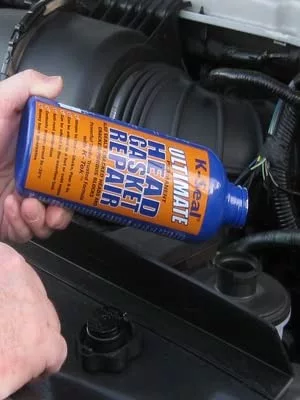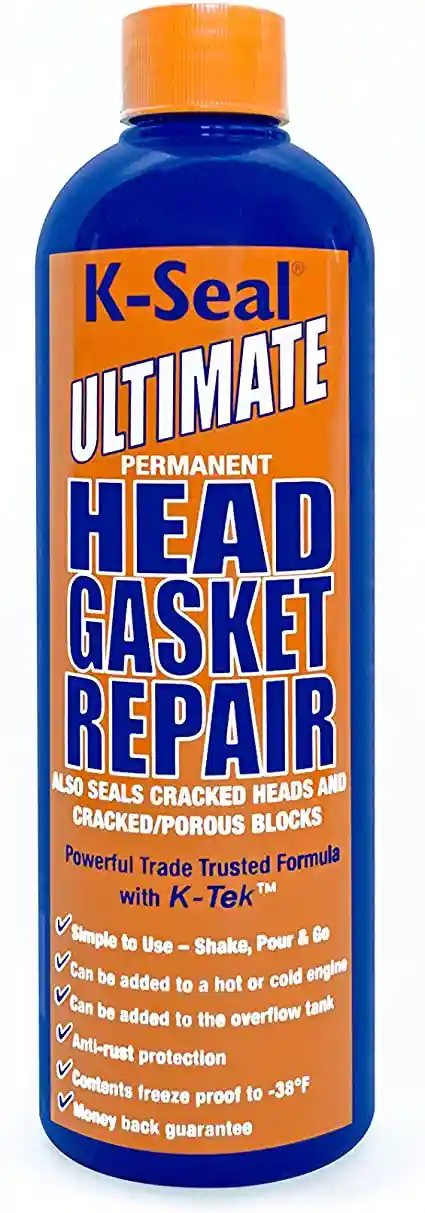How To Stop Coolant Leaking From Engine Block in 3 Minutes
Coolant leaking from your engine block is a very complicated issue. You might assume it is from the radiator without knowing it comes from your engine block. I will quickly show you a proven permanent fix to stop coolant leaking from engine block.
The major cause of leakage from engine blocks is a result of a crack from any part of the engine block. And due to the nature and build of the engine block, this is always a major issue.
When it comes to car maintenance, some tasks are more difficult than others. Keeping tabs on engine coolant is one of the trickier tasks. Coolant leakage from the engine block is a common problem with older cars and can be challenging to spot in time. Here are some tips for how to stop coolant leaking from your engine block before things get any worse.
What is an Engine Block Crack
Today, we’ll discuss fractured engine blocks, how they occur, and your available solutions. Because of the material, your engine block is comprised of, a cracked engine block is such a major concern. The most common solution for broken metal is to weld it back together.
This is regrettably not feasible with your engine block. Cast iron cannot be welded because it differs in some ways from the majority of carbon steels. The intense heat required to weld most metals is sufficient to damage cast iron and leave the surrounding region startlingly weak and brittle after the welding.
There are several methods to get a crack in your engine block. First, overheating can cause engine blocks to break. Too much heat will cause bolted joints and mating surfaces to expand and shrink to the point where the faces will begin to break.
Extreme cold weather, on the other hand, has the potential to break your engine block. In the winter, excessively low temperatures can cause the coolant in your engine to start to freeze, whether it is due to the incorrect antifreeze and water ratio or you just live in a very cold climate. Water expands as it freezes, which might cause your engine block’s walls to move enough to break.
Causes of Engine Block Crack
Your engine block can turn out to be cracked in a few distinct places. First, you could spot coolant leaking outside. If you discover coolant drips but no gasket, seal, or hose leaks, your engine block could be damaged. Make sure your leak isn’t only being caused by a leaky freeze plug in this situation! In certain circumstances, you can also have an internal engine leak caused by a fractured engine block.
In this scenario, coolant will be present in your engine oil, causing it to turn milky white or light brown.
This might be disastrous for your engine since watery oil is a terrible lubricant and can soon start to corrode and damage important engine-bearing surfaces. The last possibility is that your cylinder may have a fractured engine block. It can be quite challenging to diagnose an engine block with this sort of crack that exhibits the same symptoms as a blown head gasket.
Common Engine Block Leakage Places in Cars
To stop Coolant Leaking From Your Engine Block, you should be aware of the common places where cracks happen on an engine block, then continue with your diagnosis.
Coolant is leaking from the bottom of the engine
If you see bubbles of coolant rising to the surface of your engine block, it’s a sure sign that there’s a leak. A leak from the bottom of the engine block is the most common type of coolant leak.
It’s caused by a crack in the block casting or engine head gasket. A crack in the block casting is usually the result of corrosion or an uneven repair. If you’re driving an older car with a cast iron engine block, it’s important to check the engine block regularly for signs of corrosion.
Coolant leaking from the front of the engine block
If you see coolant leaking from the front of the engine block, it’s likely to be a failed engine head gasket. An engine head gasket leak is more associated with aluminum engines than cast iron engines.
Engine head gasket leaks are notoriously difficult to detect, especially in the early stages. They’re often easy to miss but can cause catastrophic damage to your engine if left unchecked, as well as lead to engine overheating.
Signs of an Engine Block coolant leak
If you are still wondering whether your car is really having an engine block leak, the following symptoms should have you reach a conclusion on time.
- Car overheating
- Coolant smell inside the car
- Coolant drips as soon as the engine goes off
- Heat protector and wet engine noise.
- Coloured stains inside the engine bay – mostly green and pink
- Bubbling in the overflow tank
- Low overflow level tank
- You notice steam from the exhaust
- Visible coolant leakage from the bottom of the car
These are all symptoms of an Engine block coolant leak. You may decide to visit the auto mechanic, or you can fix it yourself in a few steps.
How to Stop Coolant Leaking From Engine Block
It may be tempting to either trash your automobile or replace the complete engine if your engine block is cracked and leaking coolant. The fastest way to stop coolant leaking from engine block is with the aid K-Seal ST3501.

With the K-Seal ST3501, you can stop coolant leaking from engine block without visiting auto mechanics who would advise you to buy a new engine for their personal profit.
The K-Seal ST3501 is able to patch block crack and keep your car on the road instead of spending money on pricey repairs. It doesn’t include any fibers or other particles that would just plug the leak, in contrast to many other leak sealers.
The cast iron block of your car will really connect with K-Seal ST3501, permanently repairing the crack and keeping you on the road. Our leak seal guarantee backs up our conviction that K-Seal ST3501 will end your leak.
In order to repair fractured heads and blown head gaskets in automobiles, SUVs, and compact trucks, just one bottle of K-Seal Ultimate is required. Use two bottles for bigger engines.
Features of the K-Seal ST3501
- It comes with the pour & Go technology, which is the safest and easiest way to fix a coolant leak without the need for expensive head gasket repairs.
- It fixes cracked heads, head gaskets and engine blocks
- It’s a permanent repair and the lifetime of your engine is guaranteed.

Click Here To Check the Latest Price
Can you seal an engine block?
Yes, with the latest technological advancements, you can use sealers to seal up an engine without complications. There are many sealers that can help you stop coolant leaking from engine block, but I specifically recommend the K-Seal ST3501 because I have tried it for my own car and it worked.
How much is it to fix a coolant leak from the engine block?
The cost of repairing a coolant leak will depend on the severity of the problem. Engine block leaks caused by corrosion or a failed gasket will be much cheaper to repair than those caused by excessive wear and tear, such as excessive wear to the cylinder wall.
If the damage is limited to the engine block, you may be able to seal it yourself with a maximum amount of $50.
If there’s extensive damage, you may need to have the engine block replaced which could cost around $1,000 for a scrap yard engine.
What is the best engine block sealer?
K-Seal ST3501 is currently the best engine block sealer and has been used to seal engine blocks for more than 20 years and is ideal for sealing engine block cracks.
With the K-Seal ST3501, no flushing or draining of the cooling system is required, and it doesn’t matter what type of antifreeze or coolant you’ve previously used because the special formula works with all water-cooled engines. You just need to shake the container, add K-Seal ULTIMATE to your cooling system and hit the road again.
Conclusion
With advancements in technology, coolant leaking from engine block isn’t considered much of an issue again because it can be fixed with a lot of quick fixes sealers. There are lots of options available on marketplaces like Amazon, but I recommend K-Seal because I have used it personally and it worked pretty fine for me.
- 10 Common Mistakes When Bleeding Brakes - September 12, 2023
- Dash Cam That Records When Car is Off [5 Best] - September 11, 2023
- How to Know if Dash Cam is Recording [10 Methods] - September 8, 2023




